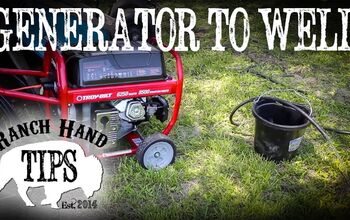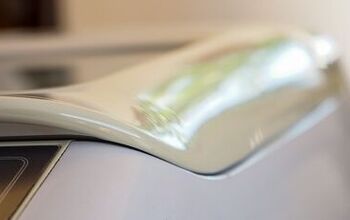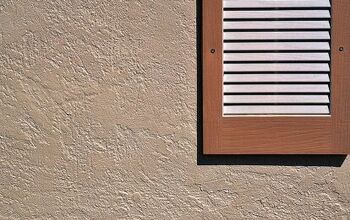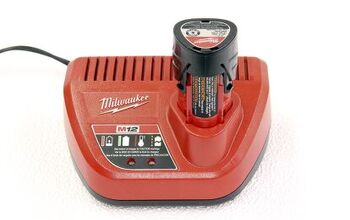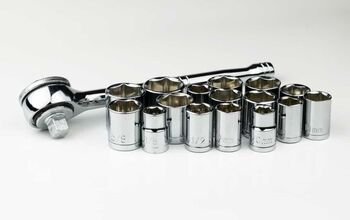House Smells Like Propane? (Here's What You Need To Do!)

If you can’t escape the stench of rotten eggs, don’t just suspect a breakfast-gone-wrong – inspect your propane pipelines. A propane leak can stink like a skunk at the moment. However, given a chance to spread, this leak can lead to property-wide destruction.
If you smell propane in your house, extinguish any nearby flames and exit the building. Once outside, turn off the propane and report the leak to the propane company. Once professionals have handled the leak, ensure the system works before reentering the premises.
Don’t let the smell overwhelm your sense of judgment. Hunt down whatever produced the odor before the situation escalates. In an emergency, initiate an evacuation plan to protect your housemates and ensure that a professional handles the problems.
Do You Need Home Inspection Services?
Get free, zero-commitment quotes from pro contractors near you.

What To Do If You Smell Propane
Step One: Extinguish All Flames
Find any flame-producing sources in your house and douse them immediately. Open flames can combust when in contact with propane gases. Turn off stovetops and fireplaces to prevent a potential tragedy.
Fires are not the only threat of combustion – electronics can cause a similar explosion. Keep light switches, telephones, and doorbells at a distance and out of use.
Unfortunately, propane leaks can create fires before you recognize the danger. Treat these as immediate threats and extinguish them with urgency.
Throw a large, wet tea towel over the top of minor fires to put them out. According to the US Fire Administration, do not toss water on these fires, as it will only spread the flames. Instead, rely on foam, powder, or carbon dioxide extinguishers.
Major fires require the assistance of professional firefighters. Do not attempt to douse these on your own. Stay far away from the flames and wait to contact the fire department until you’re outside.
Step Two: Evacuate the Premises
With all minor fires extinguished, escape from inside as soon as possible. Escort all pets and people outdoors and do not reenter the building for any reason.
Maintain a safe distance from the building once outside. The University of Boulder Fire Committee recommends a distance of 150-200 feet. This prevents further smoke and gas inhalation by the residents and distances them from any potential explosions.
Step Three: Shut Off the Propane
If you’re familiar with the building’s propane container, shut off the gas running out of it. To close the valve, turn it clockwise (or to the right). This should prevent the propane from spreading further.
If you cannot identify the location or function of the propane tank, please leave this to a professional. Do not tamper with any mechanical equipment outside of your understanding.
Step Four: Report the Propane Leak
Now that you stand at a distance from the site of the leak use your electronics freely. First, make a call to the propane company and report the problem. You can access these services’ 24/7 hotlines through their websites.
In the case of a significant fire or the propane company’s inability to respond, call 911 instead. Remain at a distance from the premises until the emergency services arrive to solve the issue themselves.
Step Five: Check the Propane System
The propane company will fix any issues upon arrival. However, before they leave, test the system yourself and check for oversights. Always ensure your safety before reentering your home and dismissing professional help.
To prevent future leaks, regularly check the vents of your household appliances. Combustion gases need to flow unobstructed to the outdoors. If there is a blockage, you can clear it out ahead of time to prevent repeating this cycle.
Why Do You Smell Propane?
Propane pipelines come equipped with measures to prevent leaks, but accidents do still occur. Gas, natural or propane, leaked into 125,000 homes each year between 2012 and 2016, according to the NFPA. The source of these incidents, however, differed from case to case.
If you smell propane, learn to identify the potential problem-starters before it’s too late.
Damage to the Propane Pipeline
According to the Energy Cooperative, there is one culprit that stands above all others: exterior damage. Any recent yard work, personal or professional, on your property risks damaging the pipelines underneath.
Faulty Appliances
Like any other machine, mechanical appliances housing propane degrade over time. Fractures in the equipment release minute amounts of gas. However, over time, these fractures – and the gas escaping from them – increase.
Tampering with Propane Equipment
Has someone fiddled with the propane tank recently? Residents and maintenance specialists alike run the risk of resealing the valves improperly. Even an attempt to fix a current issue can create another.
Always ensure that all valves are sealed properly after use and consistently check containers for unintended damage.
How to Identify a Propane Leak
If you suspect that propane has broken into your home, check for these surefire indicators: its smell, sight, and sound.
The Smell of Propane
Propane possesses an undeniable odor, one akin to rotten eggs or the stink of skunks. However, this smell does not come from the gas itself. Propane has no odor of its own.
Manufacturers incorporate ethyl mercaptan into their products to produce this trademark smell. Their reasoning? To alert customers of any leaks.
Unfortunately, propane shares this stench with other sources. Sulfur and sewage alike leave houses smelling like eggs and skunks. If odor is your only indicator, it’s best to check for every potential offender.
The Sight of Propane
Gases like propane don’t possess physical forms. However, its effects still impact the environments around us.
Want to check for propane’s presence? Search for blowing dirt and bubbling water where no wind can reach. Gas can create these otherwise inexplicable disturbances.
Propane also causes vegetation to wither without reason. If your house plants start to droop, ask yourself: are they near a vent or gas line? This could point the finger at propane.
Insects act as the last visual indicators. Believe it or not, bees and flies like the smell of propane. An influx of insects will swarm wherever the gas escapes to.
The Sound of Propane
Propane exerts a high-pitched hissing sound when released from its confinement. Stand next to the propane pipeline and listen for a whistle. If you hear it, gas is escaping from somewhere nearby.
What Are the Dangers of a Propane Leak?
As a non-toxic gas, propane can seem harmless. However, that does not mean it doesn’t pose other unforeseen dangers.
Issues abound when breathing in propane over long periods. Propane can enter the body through the lungs and begin wreaking havoc on other organs from there.
Please keep in mind that all of these symptoms are possibilities. Problems vary from person to person and can differ in manifestation and magnitude. Plus, propane can also cause damage to property.
Minor Symptoms of Propane Exposure
A brief period of exposure to propane can create inconvenient, but ultimately insignificant, problems. Do not ignore these symptoms any more than you would life-threatening issues. Quickly-occurring issues include:
- Nausea
- Coughing
- Dizziness
- Headache
- Drowsiness
- Irregular heartbeat
Continued distance from propane can cause these symptoms to disappear over time. However, if these symptoms persist, please schedule an appointment with your doctor.
Major Symptoms of Propane Exposure
If you are exposed to propane for long periods, its effects take a devastating turn. The significant symptoms of propane exposure include:
- Diarrhea
- Convulsions
- Heart failure
- Pain or numbness of limbs
- Rapid loss of consciousness
Any of the above symptoms require immediate medical attention. Please call 911 for emergency assistance as soon as you are outside of the propane’s radius.
Symptoms from Direct Contact with Propane
Propane poses a threat to more than just your lungs – it’s a danger to your skin, too. Direct contact with this frigid gas can freeze flesh.
Temporary contact with propane leads to skin irritation. Exposure may subject you to itchy or numbed patches of flesh. These symptoms should fade on their own over time.
Prolonged contact, however, results in frostbite. If you contract frostbite, please contact a medical professional immediately to avoid the loss of that appendage.
Propane is a Fire Hazard
As a liquefied gas, propane is flammable. Any contact with an exposed flame can cause the proper concentration of propane to explode.
That concentration, thankfully, only exists under abnormal circumstances. Propane must make up anywhere between 2.15% to 9.6% of the air concentration for combustion to occur. Combustion becomes more of a possibility with each second that propane leaks last.
Even worse, this aerial imbalance could create carbon monoxide. Carbon monoxide is a silent, odorless, and toxic gas. To prevent irreparable damage, it is imperative to seal up all leaks as soon as possible.
Propane Causes Asphyxiation
The most significant threat propane poses is not to your skin or your organs. It is to your life.
Propane belongs to a category of gases known as asphyxiants. Asphyxiant gases displace oxygen in the air so that our bodies can no longer absorb it. This leads to slow and steady suffocation.
Despite the danger, this occurrence is relatively rare. Only 1 in 408,695 people die when exposed to propane inhalation, according to the National Fire Protection Agency. That is a 0.00002% chance of death.
Despite those statistics, do not underestimate the danger of propane. Evacuate immediately and call for medical help if you struggle to breathe.
Do You Need Home Inspection Services?
Get free, zero-commitment quotes from pro contractors near you.

Related Questions
What if I smell propane in my car?
This might not be a result of propane at all but of hydrogen sulfide. Smelling rotten eggs indicates that the catalytic converter cannot process the hydrogen sulfide inside of it.If this is the case, take the car to a mechanic as soon as possible.
What if I smell propane from my grill?
Propane tanks, commonly attached to barbecue grills, have an easier time leaking because they are more readily exposed. To test if the grill is leaking, mix a 50/50 solution of warm water and liquid dish detergent. Spray this onto the gas valve, hose, and regulator. The appearance of bubbles proves the existence of a leak.If propane is leaking from your grill, seal the propane tank and turn the grill off. Then, follow the same steps as you would for a leak in your home.
Related Guide

Stacy Randall is a wife, mother, and freelance writer from NOLA that has always had a love for DIY projects, home organization, and making spaces beautiful. Together with her husband, she has been spending the last several years lovingly renovating her grandparent's former home, making it their own and learning a lot about life along the way.
More by Stacy Randall










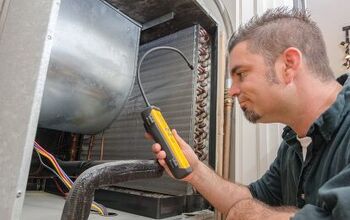
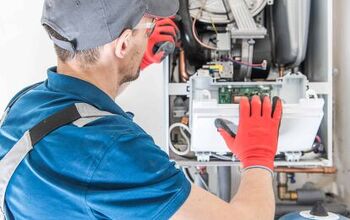


![10 Best Zero Turn Mowers – [2022 Reviews & Ultimate Buyer's Guide]](https://cdn-fastly.upgradedhome.com/media/2023/07/31/9070522/10-best-zero-turn-mowers-2022-reviews-ultimate-buyer-s-guide.jpg?size=350x220)
![12 Washing Machine Brands to Avoid [with Recall Data]](https://cdn-fastly.upgradedhome.com/media/2023/07/31/9075781/12-washing-machine-brands-to-avoid-with-recall-data.jpg?size=350x220)


